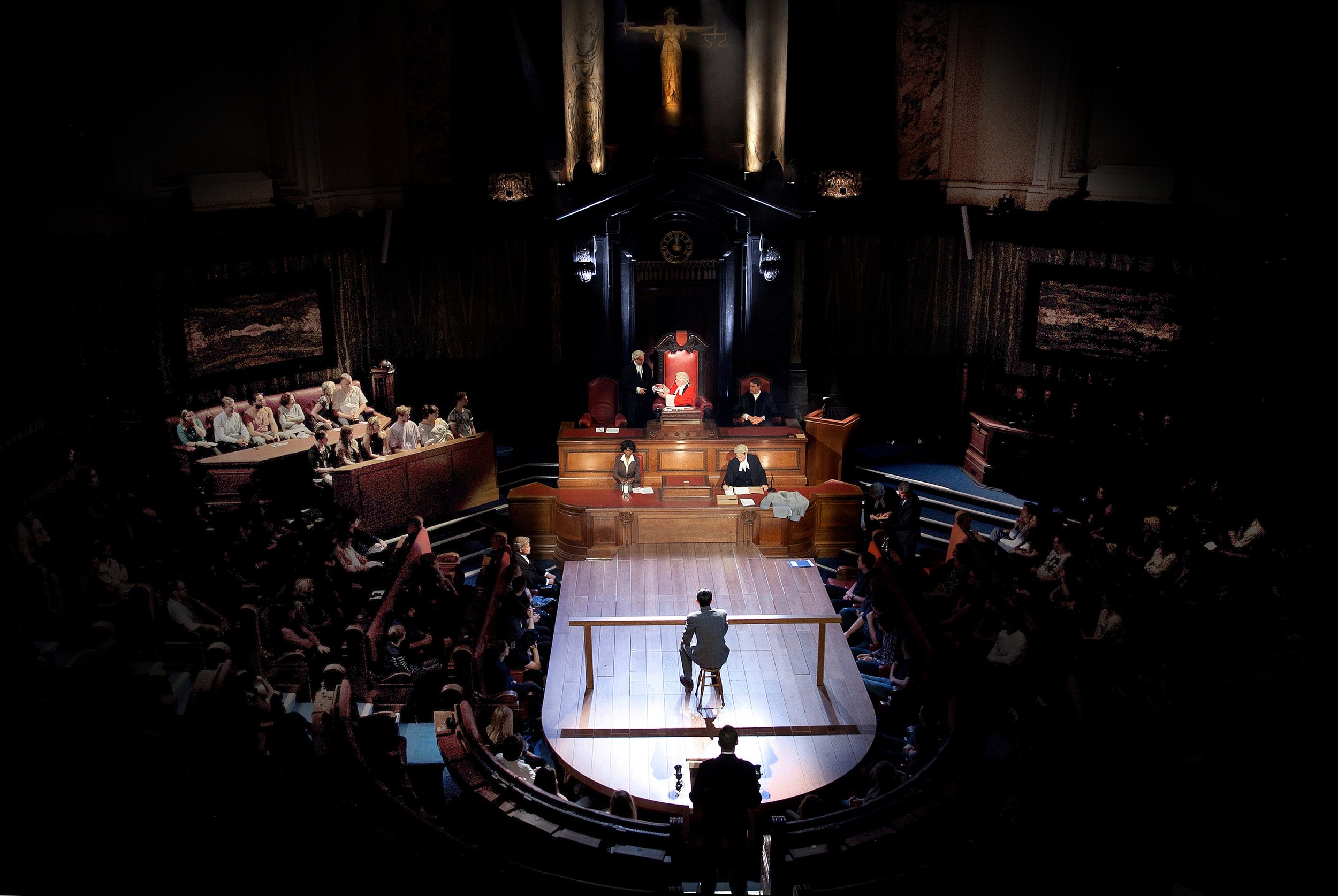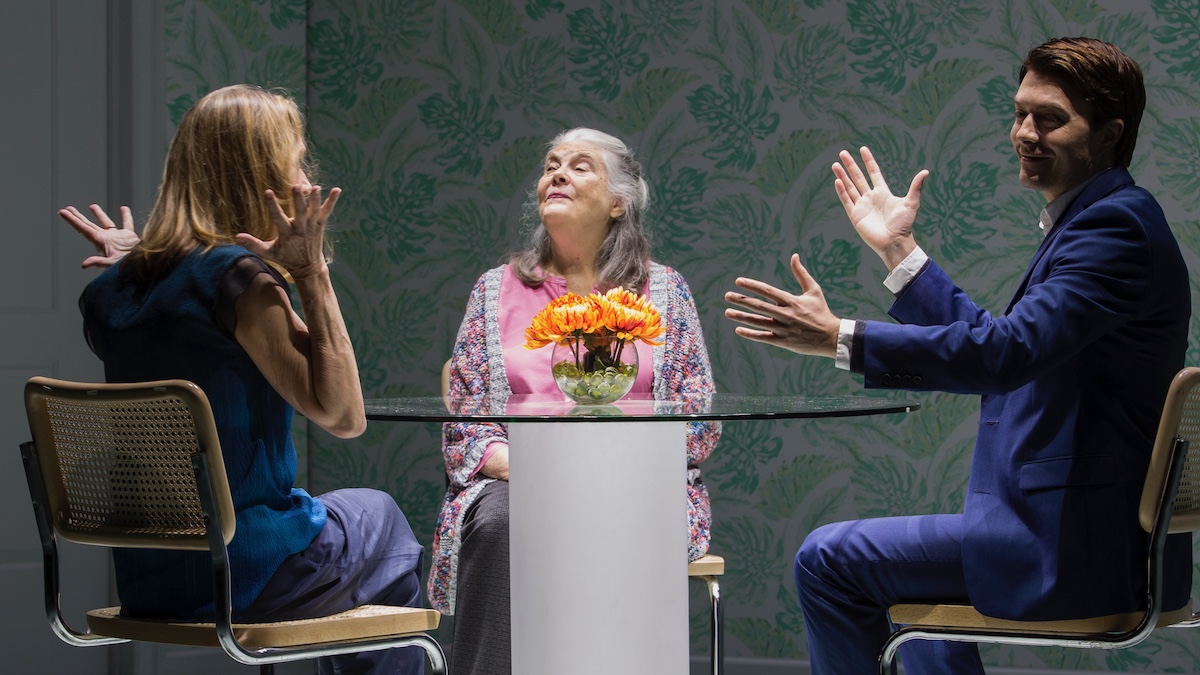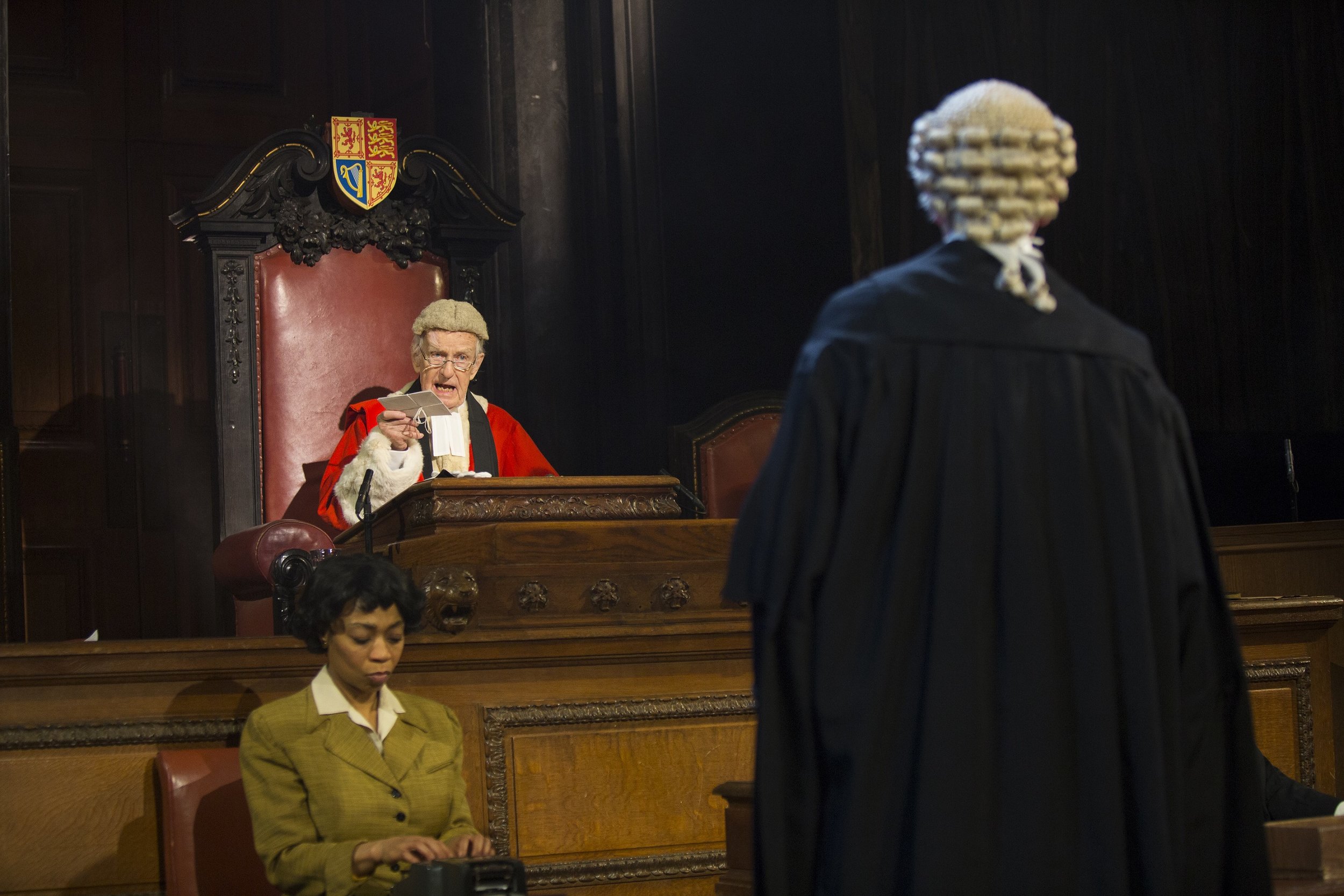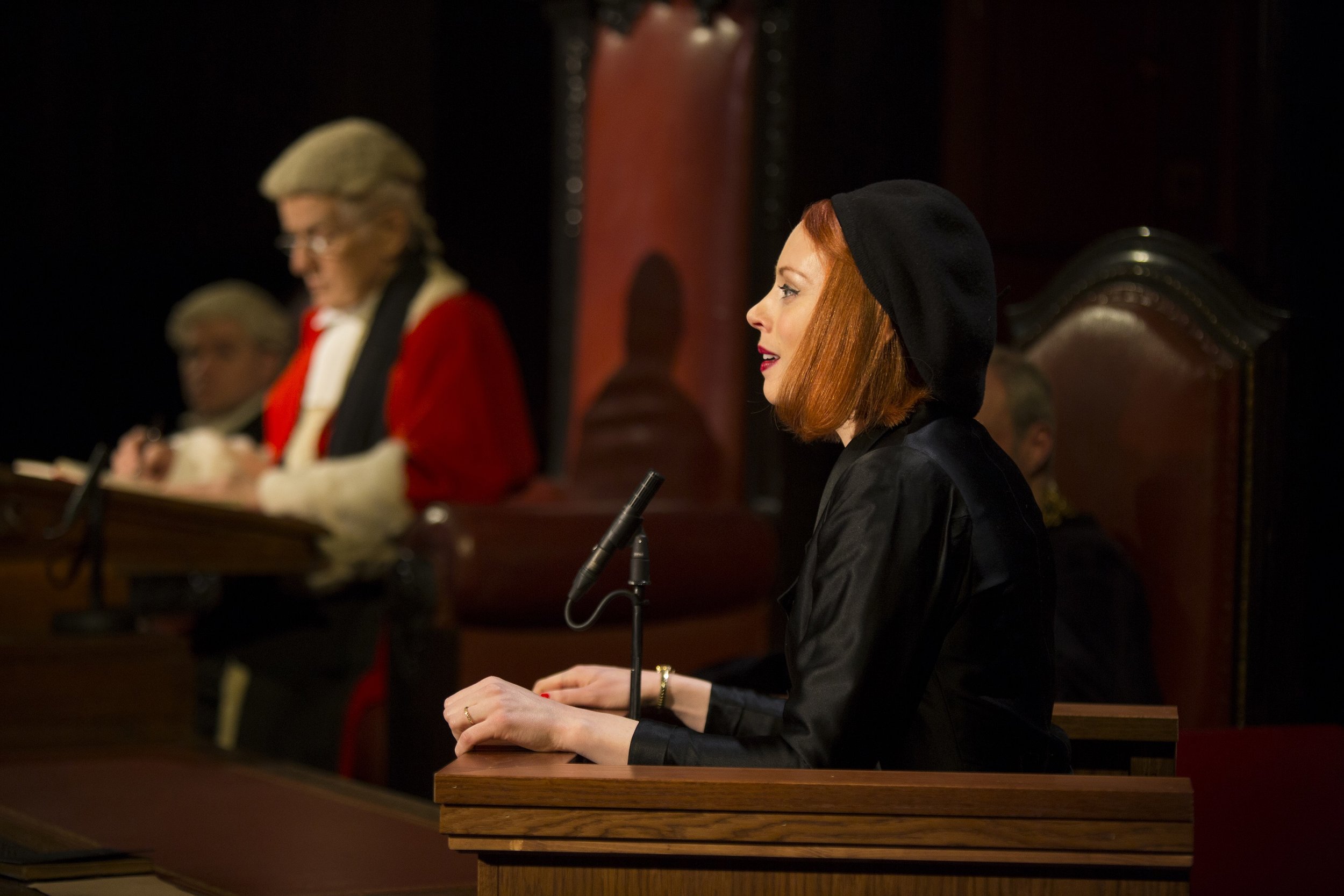
Lucy Bailey was co-founder and co-artistic director of The Print Room, London, and has directed a number of critically-acclaimed productions including Titus Andronicus (Shakespeare’s Globe, London), Dial ‘M’ For Murder (UK tour) and Love From A Stranger (Royal & Derngate, Northampton, England and a UK tour). She is currently directly Agatha Christie’s Witness for the Prosecution in a site-specific production at London County Hall, which thrillingly places the audience in the thick of the action. In this interview with arts journalist Lyn Gardner, the director discusses her experiences of working on the production and the insights it has given her into Christie’s writing.
When theatre director Lucy Bailey was first shown the long disused Council Chamber at London’s County Hall it was covered in dust.
“But I knew at once it was a gift of a space,” recalls Bailey whose site-responsive revival of Agatha Christie’s Witness for the Prosecution (US/UK), about a man accused of murder and facing the gallows, has breathed new life into the atmospheric debating chamber which was once London’s seat of power. It drips with grandeur and history.
“It is a lovely secret,” she says. “Lots of Londoners know County Hall but have never been inside. But when you do, you can’t help but be impressed by it. As soon as I saw it, I knew it was perfect. It is almost like another character in the courtroom drama.”
She was delighted recently to hear a member of the audience talking enthusiastically after the show. “He had loved the play, but he said he’d have paid money just to sit in the chamber for two hours because it’s so atmospheric.”
Where once it was politicians from all sides of the political divide who faced each other across the imposing chamber, it is now QCs Sir Wilfrid Robarts and Mr Myers who battle against each other to prove the innocence or guilt or Leonard Vole, a young man living in post-war London who is accused of murdering the lonely rich woman who he befriended. Only the evidence of Vole’s young refugee wife, Romaine, stands between him and the noose.
“Christie spent her life writing about truth and lies,” says Bailey, “and she was fascinated about the way the courts and the justice system operated. She researched to get the details right, and one of the things that Witness asks is whether the courts really do deliver justice and the truth.”
The adversarial nature of the chamber—which brilliantly stands in for the Old Bailey and comes complete with a statue of the Bailey’s famed Lady Justice with her weighing scales — has been cleverly harnessed. Some members of the audience sit in the jurors’ box as the tantalisingly twisty tale unfolds; others view the action from the old press gallery which sits above the chamber’s soaring Greek style pillars.
“There is something of a Greek tragedy in the speed with which the drama unfolds,” says Bailey about an evening which is played out with hurtling urgency on a raised Shakespearian style platform. It’s one in which Christie, “the queen of crime” is always one step ahead of the audience. It employs the original ending envisaged by Christie herself back in 1953 when she adapted her own short story for the stage. Those who think they know the denouement from the 2016 BBC TV version are in for a delicious shock.
“It is a period piece, and you have to leave it in period,” says Bailey firmly, “but one of the things I’ve learned about Christie is that she couldn’t just tell a story that keeps you on the edge of your seat – she has an acute grasp of how human beings behave which makes her work still feel unexpectedly fresh and insightful. Witness isn’t The Mousetrap. It’s never cosy. At times it might even shock.”
Without setting out to do so, Bailey has become something of a Christie specialist: her clever touring revival of Love from a Stranger (US/UK) has deservedly made the prestigious UK Theatre Awards 2018 short list for best touring production.
“I have a profound admiration for Agatha Christie,” says Bailey. “She can still hoodwink and outwit us, and she was way ahead of her time. She was fascinated by sex, violence and psychology, and you can still see her influence in the crime writing of today.”
It’s one of the reasons why Bailey believes that Christie’s mysteries still compel. She points to the fact that while Witness for the Prosecution is set in a moody post-war Britain it is unexpectedly resonant in its depiction of “the law as an old boys’ club. The lawyers and the judge are trying to serve justice, but they are also blinded by prejudice, class and their attitudes to women.”
“One of the things I’ve learned about directing Christie’s plays is that you have to commit to them, honour them and take them deadly seriously and then they repay you. Any hint that you are not taking them seriously and they fall apart.”
Not Witness for the Prosecution, which offers one of London’s most distinctive, unusual and characterful theatre experiences.
“Witness for the Prosecution works for audiences of all ages. One of the pleasures over the last year has been seeing younger audiences discovering her work for the first time and being gripped and surprised by what they find. It delivers.”
Find tickets for WITNESS FOR THE PROSECUTION at London’s County Hall.
Learn more about licensing the play (US/UK), or buy the script (US/UK).

Plays About Technology

Newly Available for Licensing – December 2025 (US)




